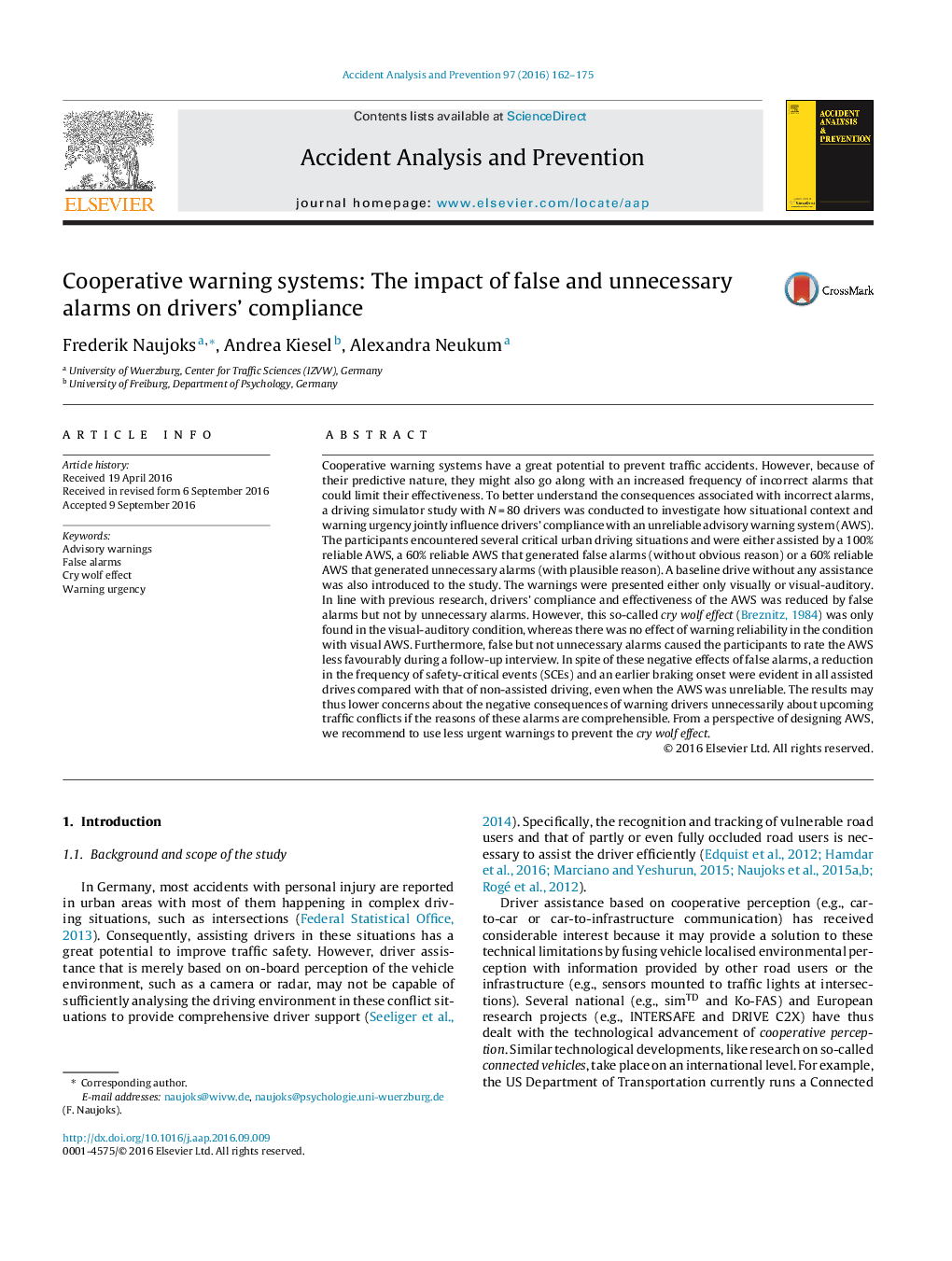| کد مقاله | کد نشریه | سال انتشار | مقاله انگلیسی | نسخه تمام متن |
|---|---|---|---|---|
| 4978923 | 1452901 | 2016 | 14 صفحه PDF | دانلود رایگان |
عنوان انگلیسی مقاله ISI
Cooperative warning systems: The impact of false and unnecessary alarms on drivers' compliance
ترجمه فارسی عنوان
سیستم های هشدار دهنده تعاونی: تاثیر هشدارهای نادرست و غیر ضروری بر رعایت رانندگان
دانلود مقاله + سفارش ترجمه
دانلود مقاله ISI انگلیسی
رایگان برای ایرانیان
کلمات کلیدی
هشدارهای مشورتی آلارم های دروغین گریه اثر گرگ، ضرورت هشدار،
موضوعات مرتبط
مهندسی و علوم پایه
مهندسی شیمی
بهداشت و امنیت شیمی
چکیده انگلیسی
Cooperative warning systems have a great potential to prevent traffic accidents. However, because of their predictive nature, they might also go along with an increased frequency of incorrect alarms that could limit their effectiveness. To better understand the consequences associated with incorrect alarms, a driving simulator study with NÂ =Â 80 drivers was conducted to investigate how situational context and warning urgency jointly influence drivers' compliance with an unreliable advisory warning system (AWS). The participants encountered several critical urban driving situations and were either assisted by a 100% reliable AWS, a 60% reliable AWS that generated false alarms (without obvious reason) or a 60% reliable AWS that generated unnecessary alarms (with plausible reason). A baseline drive without any assistance was also introduced to the study. The warnings were presented either only visually or visual-auditory. In line with previous research, drivers' compliance and effectiveness of the AWS was reduced by false alarms but not by unnecessary alarms. However, this so-called cry wolf effect (Breznitz, 1984) was only found in the visual-auditory condition, whereas there was no effect of warning reliability in the condition with visual AWS. Furthermore, false but not unnecessary alarms caused the participants to rate the AWS less favourably during a follow-up interview. In spite of these negative effects of false alarms, a reduction in the frequency of safety-critical events (SCEs) and an earlier braking onset were evident in all assisted drives compared with that of non-assisted driving, even when the AWS was unreliable. The results may thus lower concerns about the negative consequences of warning drivers unnecessarily about upcoming traffic conflicts if the reasons of these alarms are comprehensible. From a perspective of designing AWS, we recommend to use less urgent warnings to prevent the cry wolf effect.
ناشر
Database: Elsevier - ScienceDirect (ساینس دایرکت)
Journal: Accident Analysis & Prevention - Volume 97, December 2016, Pages 162-175
Journal: Accident Analysis & Prevention - Volume 97, December 2016, Pages 162-175
نویسندگان
Frederik Naujoks, Andrea Kiesel, Alexandra Neukum,
